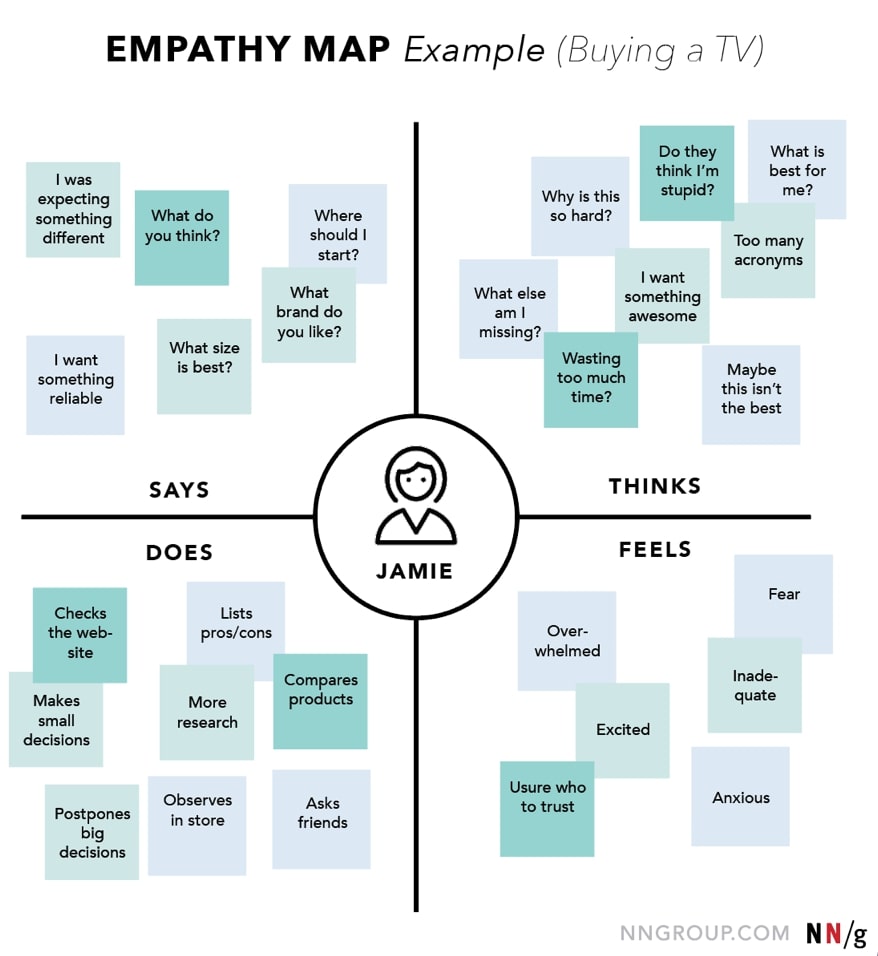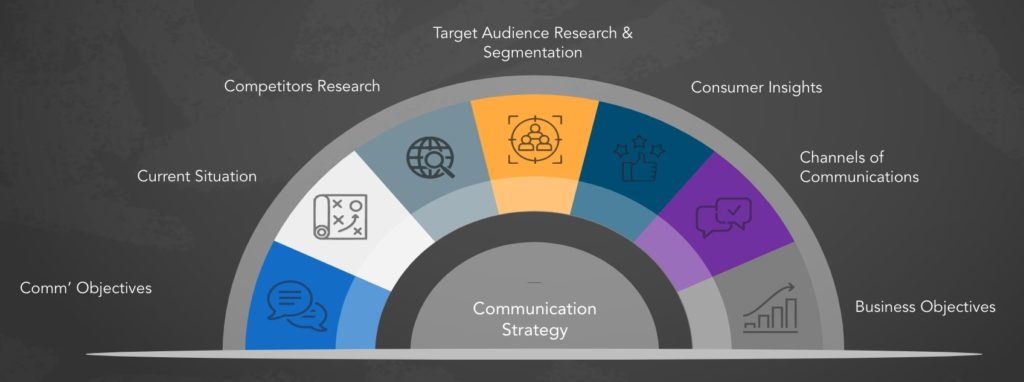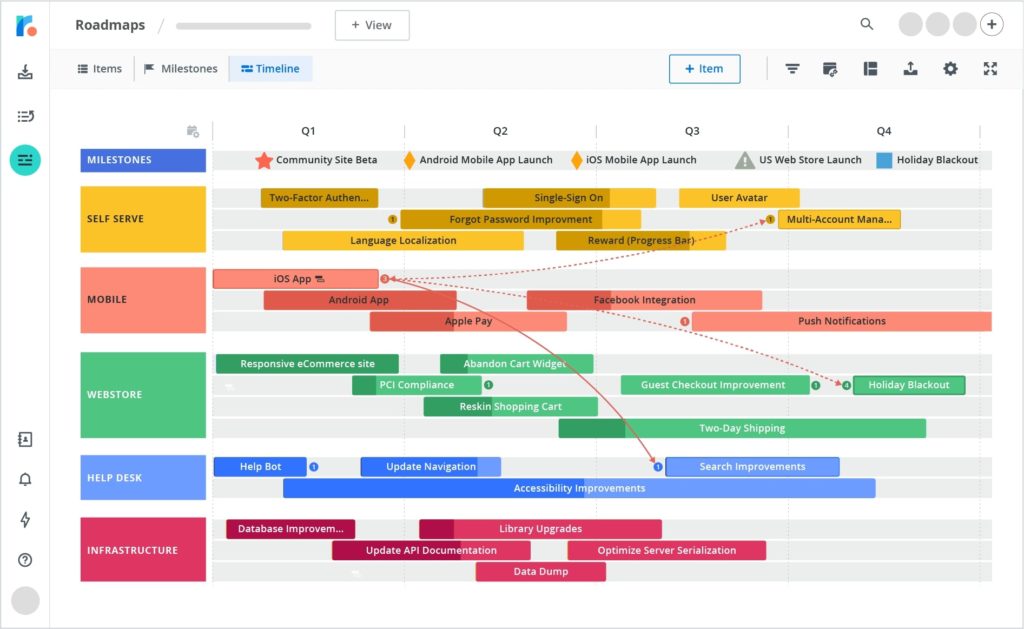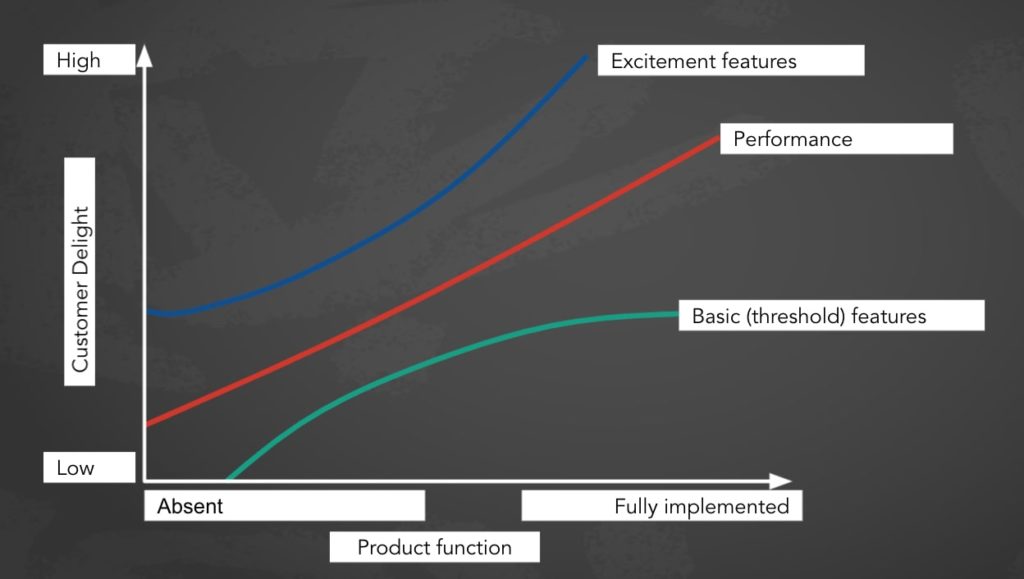Wondering which SaaS product manager skills to beef up?
SaaS product managers are crucial for an organization’s software as a service business model to succeed. They are responsible for the product’s growth, development, and implementation. They must create a plan for their company that is both profitable and cost-effective.
Countless skills and traits go into making a successful product manager. However, some skills are more essential than others. Whether you’re just starting out in your career or looking to move up to a product manager role, these skills help you get there.
Read on to find out how to become or expand your skills as a product manager for a SaaS company. This article covers essential skills you need to succeed in this role.
Let’s get started.
1. Strategic Thinking Skills
The ability to comprehend the larger picture and think in a strategic way is essential for a SaaS Product Manager. You must comprehend how your product fits into the company’s overall strategy and vision. You must also have a good understanding of the market. This includes knowing what other products are available to possible users as well as what customers want and need.
A strategic product manager is someone who must also have a good understanding of business concepts. These concepts include:
- Revenue models
- Churn rates
- Customer lifetime value
- Return on investment (ROI)
This is important as a product’s success is tied to business growth and increased revenue.
In doing so, a SaaS Product Manager needs to understand how these concepts affect their product’s ability to succeed within its given market. This has an impact on how product managers make decisions that help the company reach its goals.
On the other hand, some leaders cite strategic thinking as bringing about a lack of focus on the details. Therefore, a SaaS Product Manager needs to balance big-picture thinking with attention to detail. This helps you make good decisions and move the product forward.
Our PMHQ Product Manager Course helps you learn about the role and its ideal skill sets of product management.

2. Empathy Skills
As a SaaS product manager, you must also work on your empathy skills. Product management requires you to tap into your emotional side and help you understand others.
This is important for several reasons:

Credits: NNGroup
- To understand customer needs: It’s essential to understand what customers need and want from your product. You then translate this information into specific product features that serve to satisfy your customers’ desires.
- To understand the market: As a SaaS manager, you must have a good understanding of the market for your product. This includes understanding the business model of your competitors as well as their products and features. This helps you to figure out a product value proposition that makes your product unique.
- To manage expectations: Empathy helps you understand the needs of your internal stakeholders and external customers. This is crucial to managing expectations with both parties.
- To communicate: As a product manager, communication is a skill that you need across various responsibilities. On one hand, you must write clear product requirements and explain complex concepts in simple terms., You must also liaise with multiple stakeholders and expectations. All of this requires a deep sense of empathy and understanding of the various parties with whom you are communicating.
- To organize your workflow: Product managers have a lot of balls in the air at once. It’s essential that you be skillful at staying organized and keeping track of various tasks and deadlines. Being empathetic with yourself allows you to structure work processes and set milestones that don’t push you over the edge.
3. Product Feature Skills
To be a successful SaaS product manager, you must have in-depth knowledge of the product and its features. You need to know what your product does and how it helps customers solve their problems. You must then communicate this information to internal and external stakeholders.
Here are some tips for deepening your knowledge of the product:
- Spend time studying the features and functionality of the product.
- Understand how customers use the product and what problems they are trying to solve.
- Talk to customers and get their feedback on how the product meets their needs.
- Review customer feedback and suggestions to improve the product.
- Stay up-to-date on changes and updates to the product.
- Appreciate the competitive landscape and how your product compares.
- Develop a deep understanding of your target market and what needs your product fills.
- Use all of this information to create compelling marketing and sales materials that explain the benefits of your product.
4. Communication Skills
The ability to communicate your product vision and strategy is essential for a successful SaaS Product Manager. You need to articulate what you’re building, why it’s vital, and how it solves your customer’s problem. This involves writing effective product specifications, user stories, and other documentation. As well as giving clear and concise presentations.

But communication is a two-way street. As a product manager, you need to be an effective listener too. You must understand your team’s constraints and what they are working on. This makes sure your product roadmap is aligned with their efforts. What’s more, you must also synthesize feedback from stakeholders and customers to understand what’s important to them.
As a SaaS Product Manager, being a good communicator is critical, but it comes with its hurdles. The biggest challenge is often managing stakeholder expectations. It is challenging to keep everyone aligned and on track, and it’s easy to get bogged down in details. But with clear communication, you avoid these pitfalls and build a successful product that meets the needs of your customers and stakeholders.
5. Problem-Solving Skills
It is critical to detect and address difficulties in product management. It’s even more crucial for those working in the SaaS space. You need to assess and address issues that may arise with your product. You need a clear vision for how your product meets your customers’ needs and address their challenges.
Problem-solving skills are essential for other reasons, too. To be successful, you need to think on your feet and come up with creative solutions in a fast-paced environment. You must also communicate with your coworkers and stakeholders to identify possible concerns they may have and find solutions for them.
Here are a few things you must do to sharpen your problem-solving skills:
- Get involved in product development discussions. Be prepared to share your thoughts and offer suggestions on addressing problems.
- Stay up-to-date on new technologies and trends. This helps you better understand how your product satisfies your customers’ needs.
- Take advantage of online resources and courses. Several excellent online resources help you improve your problem-solving skills.
6. Organizational Skills
The duty of a SaaS Product Manager is to oversee the entire product life cycle. This entails all the processes needed from conception to delivery and post-launch support. This involves working with multiple stakeholders and cross-functional teams to define product requirements. It also involves collaborating with engineers to build the product and managing customer feedback once customers begin to use it.
Since there are so many important moving parts in product development, you must be both organized and detail-oriented to succeed in this role. The more organized you are, the easier it is to create and maintain a product roadmap.

Credits: Roadmunk
This document outlines your product’s vision, goals, and objectives, and it helps keep everyone on track by ensuring everyone understands the big picture. In doing so, it’s essential to have detailed specs for each feature in your product. This way, you ensure that each element is well-planned and executed.
7. Prioritization Skills
The big part of the role of a SaaS product manager is prioritization. You have to figure out what features to work on and which ones to delay or drop altogether.

If you have a lot of stakeholders who want their features implemented as soon as possible, this is tough.
However, it’s critical to concentrate on the needs of your customers and the goals of your company.
Here are a few tips for prioritizing features:
- Know your priorities. Figure out what are the most important things you need to achieve with your product. Ensure that everyone on your team is on the same page about these goals. Be sure to keep them in mind when deciding which features to work on.
- Use data to make decisions. Understand which features are most popular with your customers and focus on those first. Use that data to figure out which parts have the biggest impact on your business goals.
- Be realistic about your goals. Product managers must be ambitious, but don’t try to do too much at once. You need to prioritize the most critical features and either delay or drop the ones that aren’t as critical.
- Take into account your team’s capacity. Make sure you’re not asking your team to do too much or work on too many features at once.
8. Marketing and Sales Skills
Having a solid marketing and sales background is an essential skill for SaaS product management. You’ll be responsible for understanding your users, market trends, competitors, and customer behavior at the most granular levels.
This helps you make important decisions about features and pricing. It is also an opportunity for you to liaise with the rest of your team. The information you get from them provides you with the input you need to align all individuals involved in the marketing, sales, and development processes of product development.
9. Research Skills
The ability to research is an essential skill for any SaaS product manager. This involves understanding your target market, your competition, and the latest industry trends. It also involves gathering data and analyzing it to identify opportunities and threats.
Don’t underestimate the importance of research when building a SaaS product. It makes the difference between a successful product and one that fails.
Having strong research skills helps you make better decisions for your product and company. You learn which features are worth developing and which ones are not. Likewise, you also spot new opportunities and trends in the market to help you stay ahead of the competition.
If you’re not good at research, developing a successful SaaS product is challenging. You need to rely on others for information and analysis, which slows down the product development process.
Without research knowledge, you have a hard time distinguishing your product from the competition. Without accurate and up-to-date research, it is difficult to create a product that stands out from the rest.
10. Business Skills
It is essential to have deep knowledge of business and finance. It makes it easier for you to understand how the product fits into the market and measure its chances for success.
This includes understanding the company’s products, its competitive landscape, and how the company makes money. It also implies having a strong understanding of your product’s business model as well as the various elements that impact its margin for success.
Having a strong understanding of the factors that influence your product’s profitability makes it easier for you to create a solid product strategy.
Strong business skills are synonymous with product success. Consider taking a finance course or business program such as an MBA to help you strengthen your skills.
The key is to recognize that no matter how much experience you have, there is always room for you to learn something new.